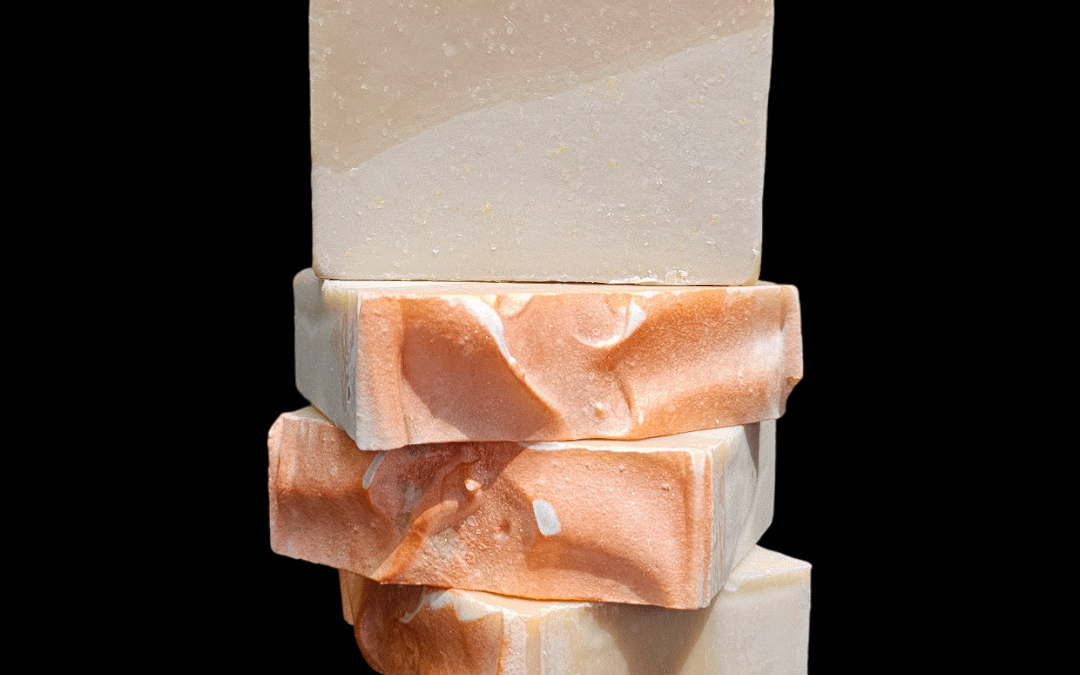What Is Cold Process Soap? A Return to Real Soap making
In a world full of colorful commercial soap bars and body washes packed with synthetic detergents, cold process soap stands out for its simplicity, craftsmanship, and skin-loving ingredients. But what exactly is cold process soap—and why are more people choosing it over store-bought alternatives?
Let’s explore what makes cold process soap special and why it’s become a favorite in natural skincare circles.
🧼 What Is Cold Process Soap?
Cold process soap is a traditional method of soap making where oils (like coconut, olive, or palm) are combined with a lye solution (sodium hydroxide and water). This triggers a chemical reaction called saponification, which turns the mixture into real soap. There is no lye that remains in the soap. All the lye and oils are converted to the sodium salt of that oil
Unlike melt-and-pour or hot process soap, cold process soap is poured into molds at room temperature and then cured for 4–6 weeks. This slow cure time allows water to evaporate, creating a hard, long-lasting, and gentle bar of soap.
🧪 Why Is It Called “Cold” Process?
The term “cold” refers to the lack of external heat during the saponification process. While the reaction itself generates some natural heat, the ingredients aren’t cooked or boiled.
This helps preserve the beneficial qualities of the oils and essential oils, making the final bar more nourishing and aromatic.
🌿 Benefits of Cold Process Soap
1. Truly Natural Ingredients
Cold process soap is made from scratch—so makers control every ingredient. You get no detergents, no synthetic lathering agents, and no questionable preservatives.
2. Glycerin-Rich
Commercial soap often removes glycerin (a natural byproduct of saponification), but cold process soap retains it, making the bar more moisturizing and gentle on skin.
3. Customizable for Skin Needs
From soothing oatmeal and honey bars to detoxifying charcoal and clay blends, cold process soap can be tailored to suit all skin types—especially sensitive or dry skin.
4. Eco-Friendly & Sustainable
Handcrafted cold process soaps are usually:
-
Palm oil responsibly sourced (RSPO)
-
Plastic-free
-
Packaged with minimal or recycled materials
5. No Animal Testing
At The Michigan Soap Co‑op, for example, all cold process soaps are vegan and cruelty-free.
🔬 Is Cold Process Soap Safe?
Absolutely—when made correctly by knowledgeable soap makers, cold process soap is completely safe and gentle. The lye is fully neutralized during curing, leaving behind nothing but pure, skin-loving soap.
It’s important to allow cold process soaps to cure fully (usually 4–6 weeks) to ensure they’re mild and long-lasting.
🧽 How Is It Different From Store-Bought Soap?
Most commercial “soaps” are actually synthetic detergents, more like body wash in a bar form. They’re often:
-
Stripped of glycerin
-
Full of sulfates, parabens, and synthetic dyes
-
Less biodegradable and more irritating to skin
Cold process soap, on the other hand, is real soap—simple, effective, and made with care.
💡 Final Thoughts: Why Cold Process Soap Is Making a Comeback
Cold process soap is more than just clean—it’s part of a movement toward mindful, sustainable self-care. When you choose handcrafted soap, you’re supporting:
-
Artisan makers
-
Ethical ingredients
-
Skin-healthy habits
-
A return to simplicity
If you’ve never tried cold process soap before, now is the perfect time. Your skin—and the planet—will thank you.
👉 Explore Our Cold Process Soap Collection
Shop Now

